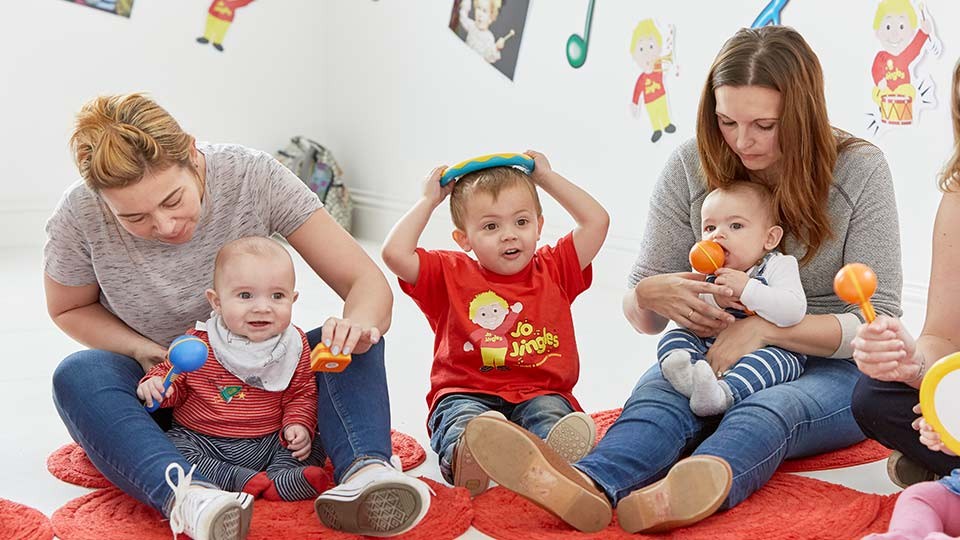Introduction: Understanding the impact of music on infant brain development has become an increasingly intriguing area of research in recent years. Music, with its intricate patterns and rhythms, has been found to stimulate various regions of the brain, including those responsible for language processing and emotional regulation. Harnessing the power of music during infancy has the potential to enhance cognitive, linguistic, and socio-emotional development in babies. In this article, we delve into the fascinating realm of enhancing infant brain responses to music and speech through music, exploring the research findings, practical applications, and potential benefits.
Music and Brain Development in Infants
Research suggests that exposure to music during infancy can have profound effects on various aspects of brain development. Studies utilizing techniques such as electroencephalography (EEG) and functional magnetic resonance imaging (fMRI) have provided insights into how music engages different regions of the infant brain. Specifically, music has been found to activate areas involved in auditory processing, language development, emotional regulation, and even motor coordination. These findings hold valuable implications for cases in healthcare, as understanding the positive impact of music on infant brain development may inform therapeutic interventions for conditions related to auditory processing, language disorders, emotional well-being, and motor coordination challenges.
Enhancing Language Development
One of the most significant benefits of exposing infants to music is its positive impact on language development. Music, with its rhythmic patterns and melodic contours, mirrors the prosodic features of language. Infants exposed to music early in life demonstrate enhanced sensitivity to linguistic sounds and exhibit accelerated language acquisition compared to their peers. Singing to infants, especially using lullabies and nursery rhymes, can help reinforce phonological awareness and support the development of vocabulary and grammar.
Strengthening Emotional Regulation
Music has the unique ability to evoke and regulate emotions. For infants who are still developing their emotional processing skills, music serves as a powerful tool for emotional regulation. Lullabies, in particular, have been shown to have a calming effect on infants, reducing stress and promoting relaxation. By creating a soothing auditory environment, music can help infants regulate their emotions more effectively, fostering a sense of security and well-being.

Practical Strategies for Incorporating Music
Integrating music into daily routines can be simple and enjoyable for both parents and infants. Here are some practical strategies for incorporating music into the infant's environment while preparing their baby formula. Consider playing soft lullabies or soothing melodies during feeding times, creating a calming and pleasant atmosphere. The rhythmic sound of a gentle tune can enhance the bonding experience between parent and infant, making the feeding process a harmonious and sensory-rich activity.
- Singing lullabies and nursery rhymes during bedtime routines.
- Playing gentle, soothing music during feeding or diaper changing.
- Using musical toys or instruments for interactive play sessions.
- Attending parent-child music classes or baby music groups.
- Creating personalized playlists featuring a variety of musical genres and styles.
Considerations for Effective Implementation
While music can be a valuable tool for enhancing infant brain responses, it's essential to consider some key factors for effective implementation:
Age appropriateness: Choose music that is developmentally appropriate and tailored to the infant's age and stage of development.
Sensory sensitivity: Be mindful of the infant's sensory preferences and sensitivities when selecting music.
Consistency: Incorporate music into daily routines consistently to maximize its benefits and establish familiarity.
Responsive interactions: Engage in responsive interactions while incorporating music, such as mirroring the infant's cues and responding to their vocalizations.
Variety: Expose infants to a variety of musical experiences, including different genres, rhythms, and tempos, to promote auditory discrimination and exploration.
Conclusion
Music holds tremendous potential for enhancing infant brain responses to both music and speech. By leveraging the power of music during infancy, caregivers can support various aspects of infant development, including language acquisition, emotional regulation, and social bonding. Through intentional and consistent exposure to music, infants can experience a rich sensory environment that lays the foundation for lifelong learning and well-being. Embracing music as a tool for early intervention and enrichment can pave the way for brighter futures for our youngest learners.


No comments yet